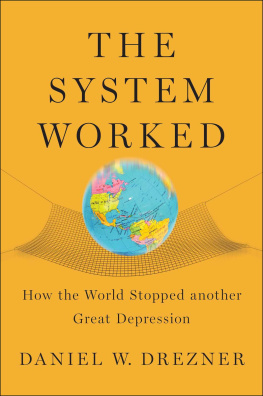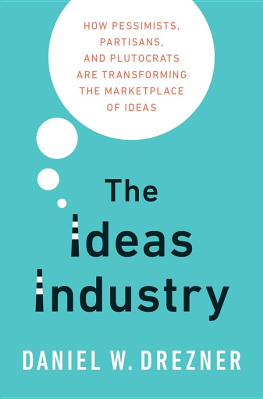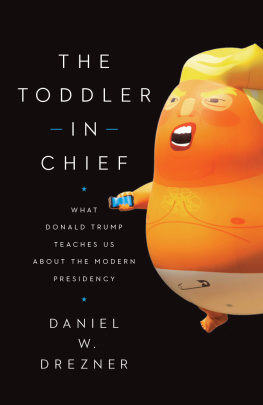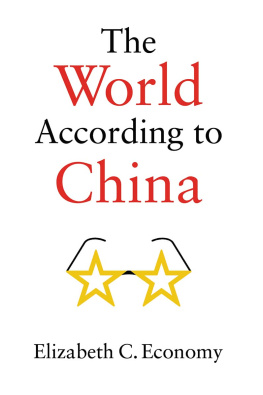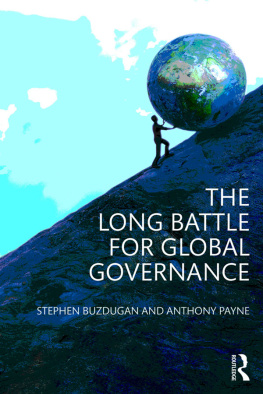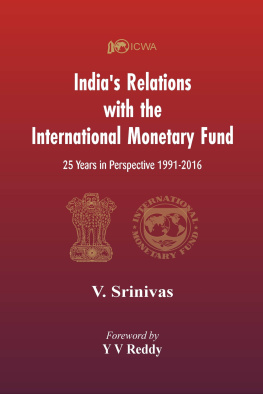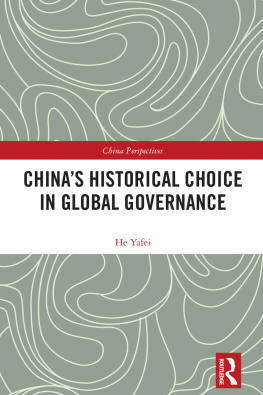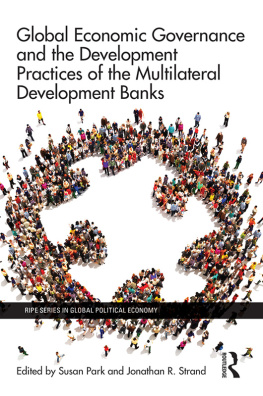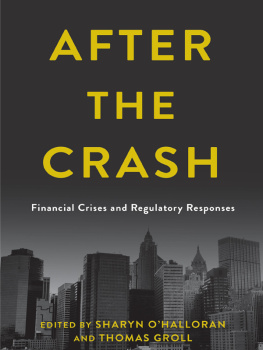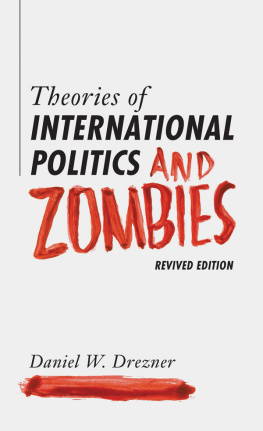THE SYSTEM WORKED
THE SYSTEM WORKED
HOW THE WORLD STOPPED
ANOTHER GREAT DEPRESSION
DANIEL W. DREZNER


Oxford University Press is a department of the University of Oxford.
It furthers the Universitys objective of excellence in research,
scholarship, and education by publishing worldwide.
Oxford New York
Auckland Cape Town Dar es Salaam Hong Kong Karachi
Kuala Lumpur Madrid Melbourne Mexico City Nairobi
New Delhi Shanghai Taipei Toronto
With offices in
Argentina Austria Brazil Chile Czech Republic France Greece
Guatemala Hungary Italy Japan Poland Portugal Singapore
South Korea Switzerland Thailand Turkey Ukraine Vietnam
Oxford is a registered trademark of Oxford University Press
in the UK and certain other countries.
Published in the United States of America by
Oxford University Press
198 Madison Avenue, New York, NY 10016
Oxford University Press 2014
All rights reserved. No part of this publication may be reproduced, stored in a retrieval system, or transmitted, in any form or by any means, without the prior permission in writing of Oxford University Press, or as expressly permitted by law, by license, or under terms agreed with the appropriate reproduction rights organization. Inquiries concerning reproduction outside the scope of the above should be sent to the Rights Department, Oxford University Press, at the address above.
You must not circulate this work in any other form
and you must impose this same condition on any acquirer.
Library of Congress Cataloging-in-Publication Data
Drezner, Daniel W.
The system worked : how the world stopped another great depression / Daniel W. Drezner.
pages cm
ISBN 9780195373844 (hardback : alk. paper) 1. Global Financial Crisis,
20082009. 2. Financial crisesGovernment policy. 3. FinanceGovernment
policy. 4. Recessions21ST century. 5. Economic history21ST century. I. Title.
HB3722.D74 2014
330.90511dc23
2013044640
1 3 5 7 9 8 6 4 2
Printed in the United States of America
on acid-free paper
This book is dedicated to Stephen D. Krasner, the Graham H. Stuart Professor of Political Science at Stanford University, a giant in the study of global political economy and, some moons ago, my dissertation adviser. In my professional career, Steve pushed me to think more rigorously and systematically about power than any other colleague. Its payback time.
CONTENTS
This book has been an intellectual exercise in trying to figure out why I was so wrong six years ago and why so many other smart analysts have been so wrong since.
Back then, I had a pretty good idea for a bookit would be a clarion call about the sclerotic state of multilateral economic institutions. In it, I would sagely observe that the last major burst of international institutional creation had been in the late 1940s and point out that the distribution of power looked a wee bit different in the twenty-first century. If current mismatches between global governance structures and the distribution of power were allowed to fester, then those structures would rest upon very shaky foundations. The rise of the BRICs clearly mandated such reforms. I would warn that although reforming global governance was a thankless task, failure to take action would leave these institutions ill-equipped for a severe global shock. Proactive steps would be necessary to prevent the global economy from experiencing the 1930s all over again.
Before I could start writing in earnest, however, Lehman Brothers went bankrupt, the federal government bailed out AIG, and the Reserve Primary Fund broke the buck. My warning was overtaken by events; the severe global shock had happened.
It was impossible to write a book on global economic governance when the global economy seemed to be melting down in real time. So, I stepped away and wrote on some issues that were not changing at the speed of light. I paid attention to the 2008 financial crisis and, like most other commentators, took a jaundiced view of how the global political economy was performing. I also got distracted by zombies for a spell.
By the time I doubled back to re-examine the state of global economic governance, I noticed two odd trends. First, the closer I looked at the performance of the system, the clearer it became that the meltdown I had expected had not come to pass. Second, most other observers nonetheless remained deeply pessimistic about the functioning of the global political economy. Indeed, book after book on the financial crisis was arguing the exact opposite thesis to my initial impressions. I could not blame these commentators for being so pessimistic because I had felt that way too when the crisis began. Nevertheless, I had come to believe that I was wrong then and that they are wrong now.
I have racked up numerous debts during the thinking and writing of The System Worked. I am particularly grateful to David McBride at Oxford University Press. He was supportive of my original book proposal and even more enthusiastic about what the book turned out to be. Most important, Dave displayed superhuman patience while I sorted out exactly what I wanted to write. Sarah Rosenthal, Molly Morrison, and Ginny Faber also made superhuman efforts to convert my scribblings into this attractive-looking text youre now reading.
I also thank the Fletcher School of Law and Diplomacy and the Michael and Andrea Leven Foundation for enabling me to take a sabbatical year to focus on this project. I am particularly grateful to Peter Uvin and Stephen Bosworth, who were, respectively, the academic dean and dean of the Fletcher School during the start of this project. They provided unstinting support. I will assume that it is simply a coincidence that both leaders left Fletcher before I finished my manuscript. Similarly, I thank Fletchers current dean, James Stavridis, and academic dean, Ian Johnstone. My other colleagues at Fletcherparticularly Kelly Sims Gallagher, Nancy Hite, Zeynep Bulutgil, Jenny Aker, Jeswald Salacuse, Joel Trachtman, and Michael Kleinmade working on this project more bearable. My staff assistants, Karen Mollung and Paulette Folkins, made the trains run on time. My research assistants at FletcherDahlia Shaham, Maggie Riden, and Rebecca Perlmanwere also extremely helpful in chasing down answers to some of the more abstruse questions I asked them. Estefania Marchan and Aaron Melaas did outstanding jobs of poring over the manuscript with fresh pairs of eyes, offering valuable perspectives and some last-minute research assistance. Martin Weiss at the Congressional Research Service and Amare Bekele at UNCTAD provided enlightenment when it was needed on some very obscure questions involving IMF quotas and bilateral investment treaties.
During my sabbatical year, Beth Simmons was kind enough to lend me an office at Harvard Universitys Weatherhead Center for International Affairs. Thanks to her, Jeffry Frieden, Bob Ross, Prerna Singh, and Dustin Tingley for making me feel at home there.
As Ive wrestled with these issues, Ive been the beneficiary of a rolling conversation with international political economy and international relations scholars across an array of venuescoffee breaks, small conferences, large meetings, and invited talks. I thank Kate McNamara, Walter Mattli, Duncan Snidal, Henry Farrell, Layna Mosley, Christina Davis, Mark Blyth, Courtney Fung, Bruce Jones, Abe Newman, Leslie Johns, Miles Kahler, Jonathan Kirshner, Michael Mastanduno, Manjari Chatterjee Miller, G. John Ikenberry, A. Iain Johnston, Carla Norrlof, Zhu Feng, Robert Ross, Pan Rui, David Victor, Steven Bernstein, Brad Glosserman, Peter Gourevitch, Todd Hall, Alan Alexandroff, James Lindsay, John Mueller, Matthias Matthijs, Eric Rauchway, Kevin Gallagher, Kevin H. ORourke, Randall Schweller, David Andrew Singer, Alexander Thompson, Tom Wright, and Charli Carpenter for their thoughts and feedback.
Next page
